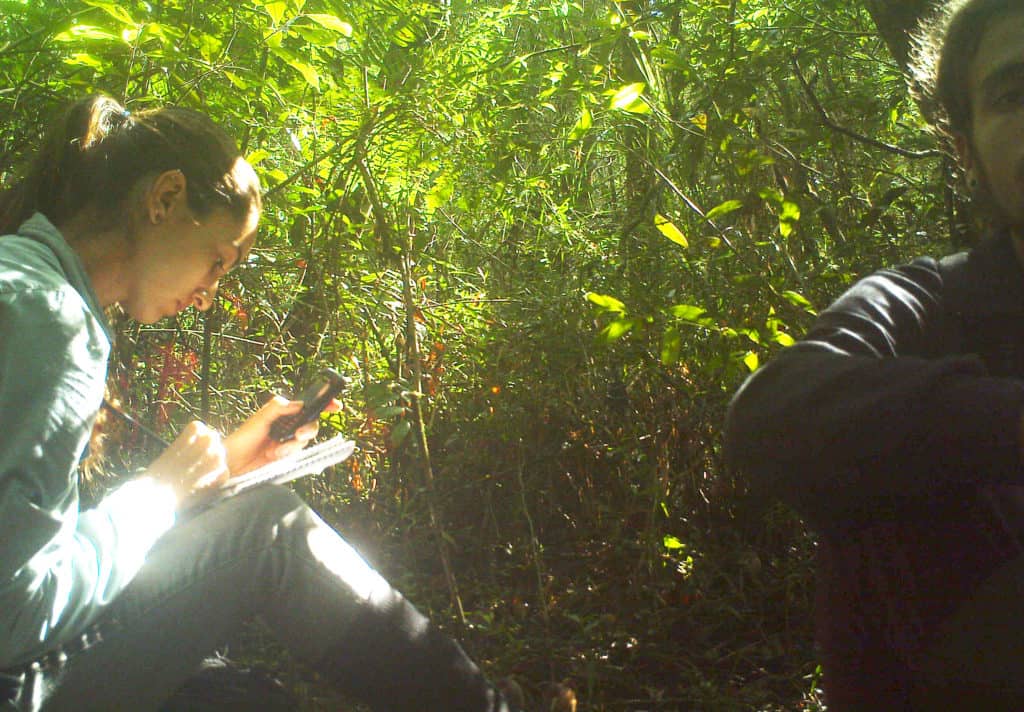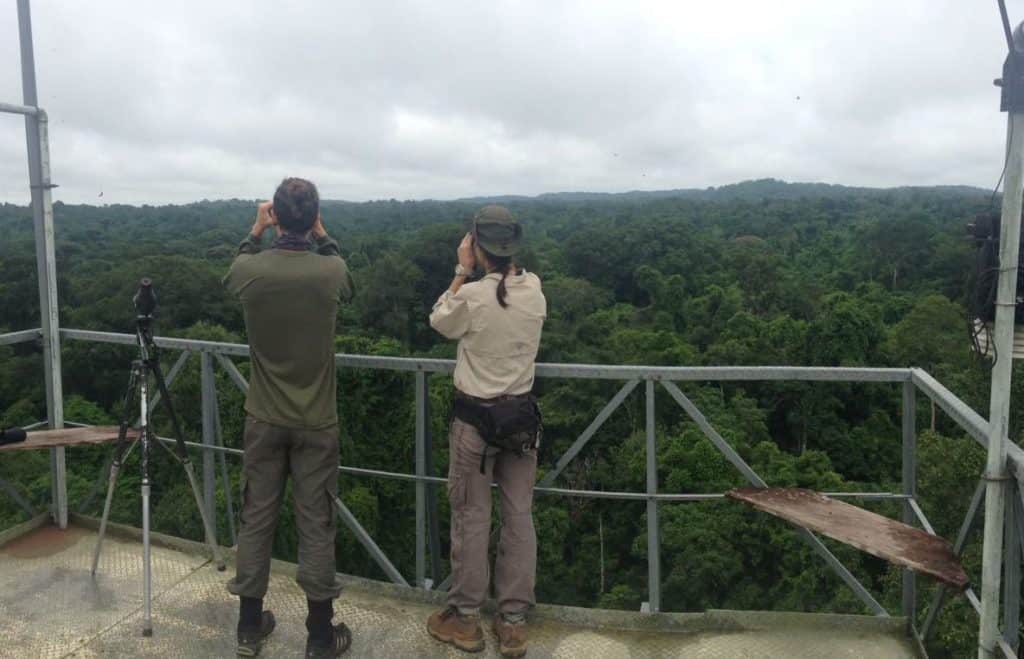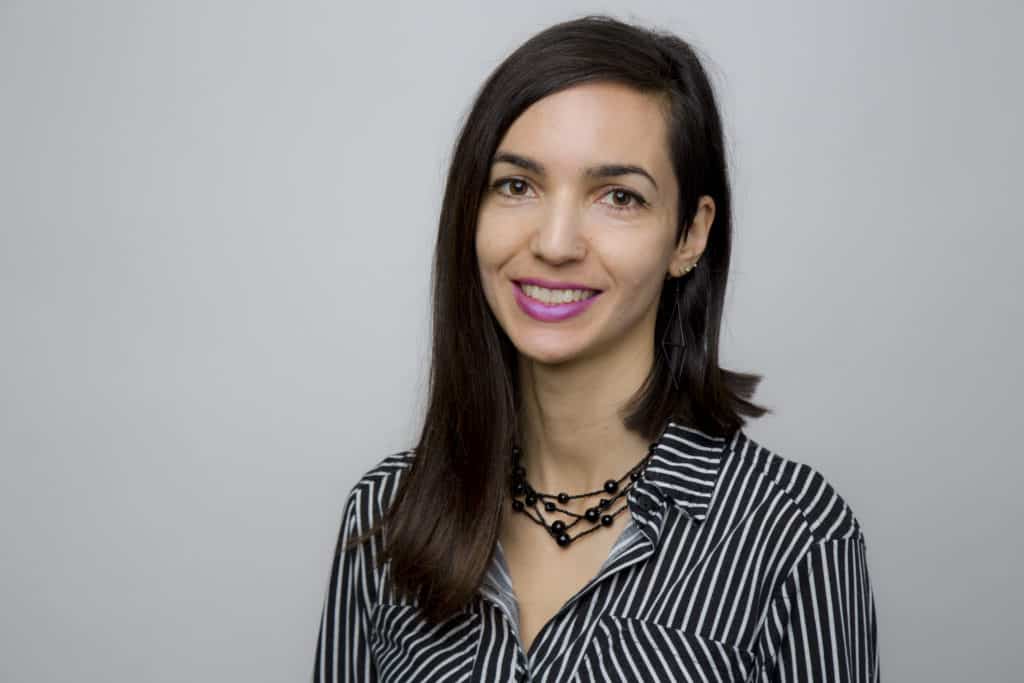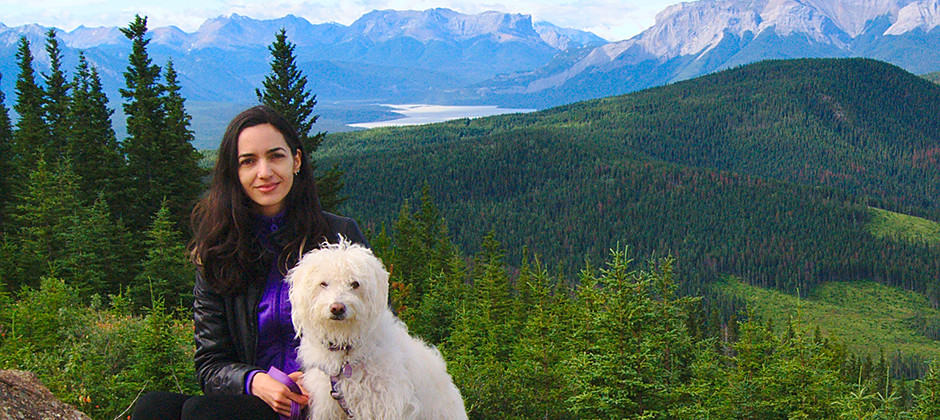Share this article
Wildlife Vocalizations: Mariana Nagy-Reis
Wildlife Vocalizations is a collection of short personal perspectives from people in the field of wildlife sciences.
I was born and raised in Brazil, where heavy rain, dense forests and wildlife somehow collide with one of the largest metropolises in the world. My hobbies as a kid involved collecting insects and rescuing street animals. But it was after watching Gorillas in the Mist, a movie that portrays Dian Fossey’s journey working to save the mountain gorillas in Africa, that I decided to become a biologist. At the time, I was 9 years old and I just wanted to be like her — a strong female leader dedicated to saving endangered species.
I have a background in biological sciences and a master’s and PhD in ecology, all from Brazil. Throughout my career, I have worked with a variety of species, from neotropical monkeys and small carnivores to iconic Canadian species such as the woodland caribou.

Mariana checking camera traps and conducting playbacks for primates in the Atlantic Forest, Brazil.
Credit: Mariana Nagy-Reis
As a graduate student, I spent most of my days in the field, following monkeys from sunrise to sunset, collecting fruits and scat and deploying camera traps. As part of my PhD, I have also worked closely with Brazilian local communities and stakeholders to evaluate wildlife habitat requirements and support decision making.
I felt I was on the right track towards a successful career, but after my graduate studies, I faced a real struggle in finding opportunities in the job market. I’d say that science is neither valued nor a priority in Brazil, and finding opportunities as a woman makes things incredibly harder given implicit (and explicit) society biases. In fact, if you do science in Brazil, people often ask you why you don’t get a “real job,” as if working 40 hours a week on research projects wasn’t an actual job. After about two years of intense planning, my partner and I were able to move to Canada, where we were both lucky enough to meet professors who trusted in our abilities and gave us an opportunity to start over.

Mariana and her husband, César Estevo, doing fieldwork in the Amazon, Brazil.
Credit: César Estevo
In Canada, I did a postdoc on big game habitat and management. Soon after that, I started working with species-at-risk recovery at the Alberta Biodiversity Monitoring Institute, in partnership with provincial and federal government agencies. I have recently joined the TWS Alberta Chapter’s Conservation Affairs Committee and the TWS Wildlife and Habitat Restoration Working Group. I also represent the TWS Inclusion, Diversity, Equity and Awareness Working Group at the committee of The Native American Research Assistantship Program and I am part of the 2020 cohort of the TWS Leadership Institute.
When I look back at my experiences, where I was and where I am today as a wildlife professional, I identify several barriers, but I also identify critical tipping points where amazing well-established wildlife professionals showed support and changed my life simply by giving me a chance. I learned to embrace and share my uniqueness and to trust my rich perspective. As a Latin American female and a newcomer, my professional goal now goes beyond protecting wildlife. I now also want to be that professional who gives a hand to early-career professionals and empowers them to become part of the solution.

Credit: University of Alberta
A similar version of Mariana’s story has also been published as part of the Alberta Chapter of The Wildlife Society’s (ACTWS) Diversity is our Strength. This web series shares the successes, challenges, stories, and research of the diversity of members who are part of the ACTWS.
Learn more about Wildlife Vocalizations, and read other contributions.
Submit your story for Wildlife Vocalizations or share the submission form with your peers and colleagues to encourage them to share their story.
For questions, please contact Jamila Blake.
Header Image: Mariana and her dog, Maia, in Jasper National Park. Credit: César Estevo








